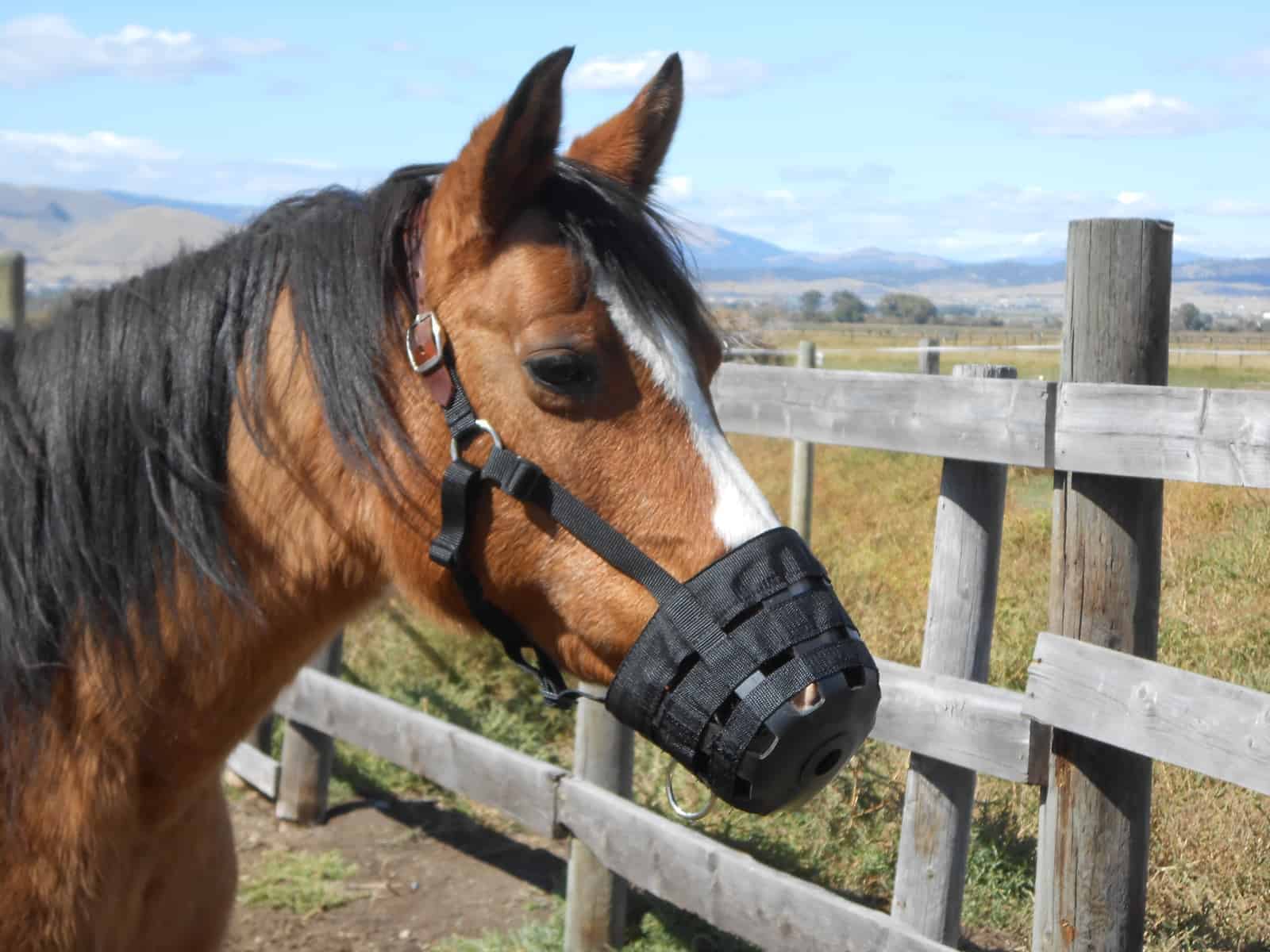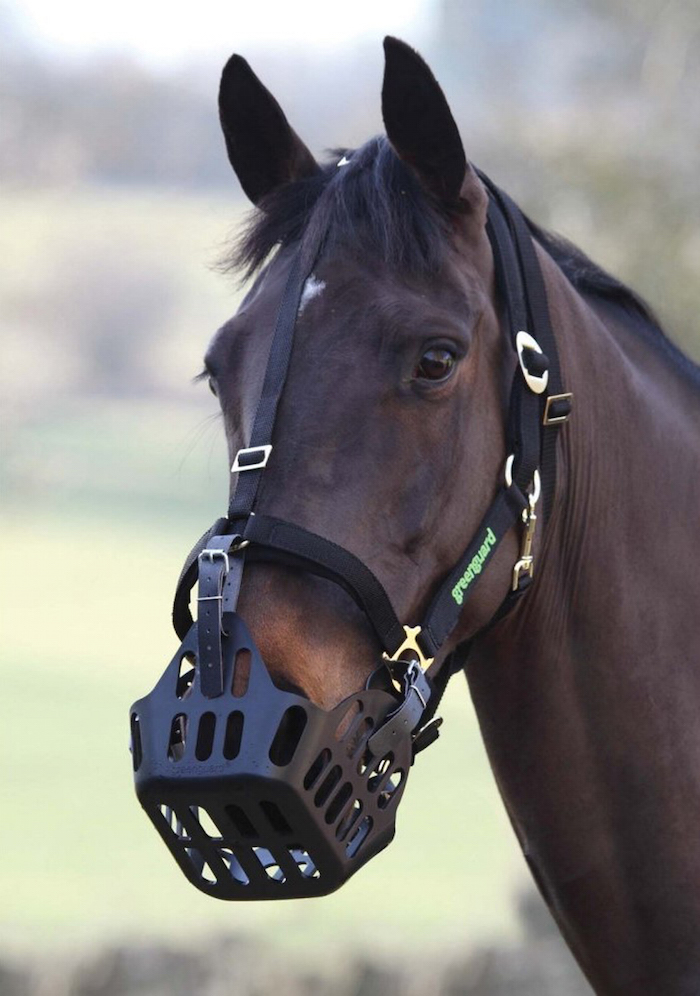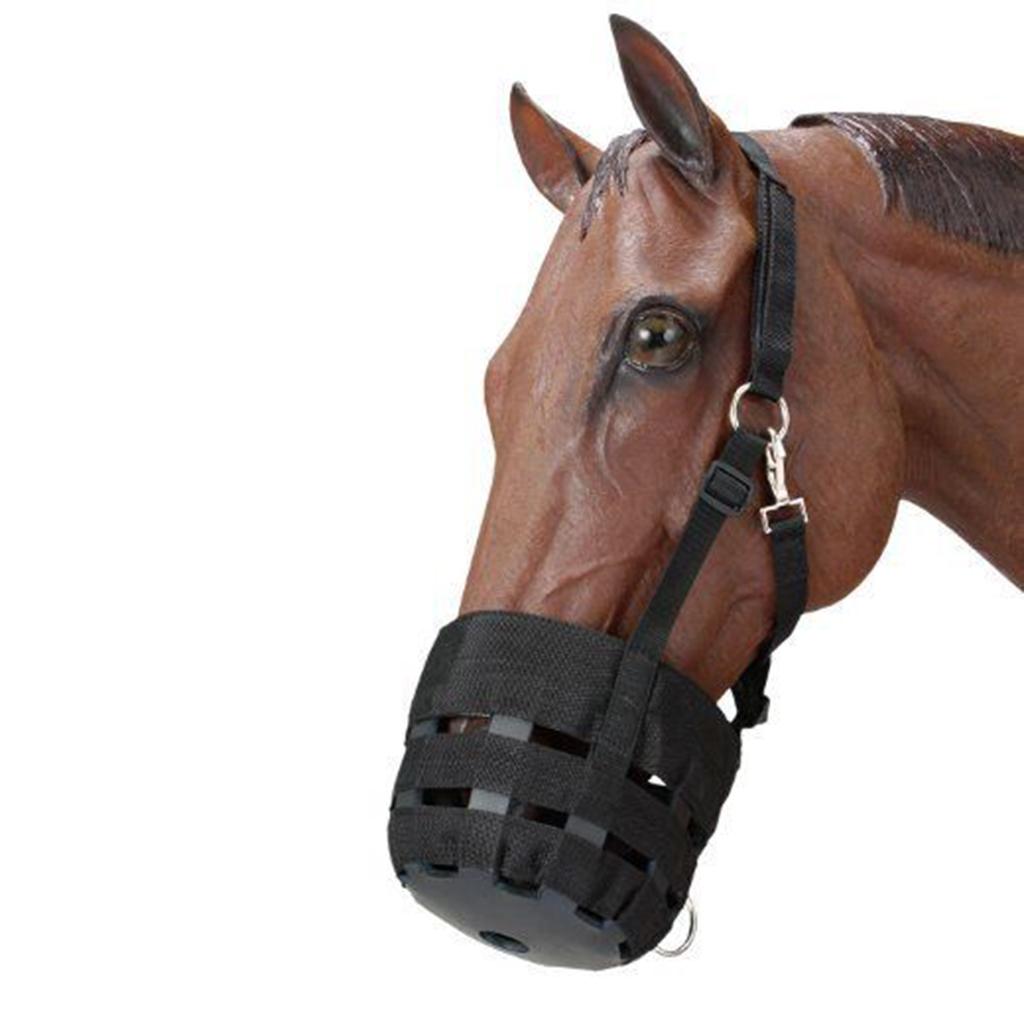
Horses are constant eaters, they prefer to spend the whole day eating. Getting the horse used to the muzzle gradually We therefore strongly advise against homemade muzzles. All in all, there are many points you have to pay attention to when using them. Under no circumstances should your horse's breathing be restricted by the muzzle used. To avoid overheating, we recommend muzzles made of light materials with large holes. Some muzzles are also padded with synthetic sheepskin to prevent chafing. Leather muzzles are particularly popular for this reason. You must make sure that the grazing muzzle used does not chafe, press or rest against the nostrils or in the horse's mouth area. Horses are particularly sensitive in the head area. Regardless of whether it is a horse muzzle or a grazing muzzle, it must be comfortable to wear. It is always crucial that any muzzle used fits correctly. What to look for in muzzles and grazing muzzles for ponies and horses Some muzzles have a hole in the middle, others have large individual holes or bars that slow down the intake of grass and hay. The openings in the area of the mouth also vary depending on the design. Other models are simply attached to the head strap of the halter or leather headcollars. There are grazing muzzles for horses with an integrated halter or a head strap, in which case a separate halter is not necessary. When it comes to fitting, the individual models can differ. Whether for a Shetty, a Thoroughbred, a warmblood or a coldblood, a grazing muzzle for horses should always be made of a sturdy material. The different types of horse muzzles and grazing muzzles The difference is quite simple: with a muzzle your horse cannot eat at all, with a grazing muzzle for horses the intake of food is still possible to a limited extent. However, these two terms are often used as synonyms. That's right, there is a difference between a horse muzzle and a grazing muzzle.
#Horse grazing muzzle skin

#Horse grazing muzzle full
There should be a bit of extra room at the back of the muzzle for full jaw action without rubbing as he chews. Feed your horse a nice treat to watch the chewing action.If you need to secure the front strap to keep it stationary on the noseband, use Vetrap® or similar material to hold it in place across the front of the halter.


Unfortunately, once a horse has learned to remove a muzzle, he/she can get out of most muzzles. It will not be too hot to place on their head.Ĭan my horse remove the muzzle or cheat and go through the sides? The muzzle cools quickly and in the process of shaping it, we recommend putting it in cool water to set the shape. Is the muzzle too hot to put on my horse after adjusting it? If you leave it quite open for maximum air flow and a horse takes advantage of that, you can bend it up a bit tighter to keep it in place. One of the many advantages is that the muzzle can be reshaped as many times as required to get the right fit. You may find that you can use a closer fit, which will help the muzzle stay in place better and make it harder for them to get through the cracks on the side. Order the correct size– the additional breathing room makes it much more comfortable even in hot weather. Should I order the correct size or a larger one? I have had to use a larger size muzzle in the past so my horse had enough room to breathe. The Harmany Muzzles have Kevlar fibers worked into the plastic, so they’re very durable! Your horse might wear through 2-3 traditional muzzles a season, but just one Harmany Muzzle should last 1-2 entire grazing seasons.


 0 kommentar(er)
0 kommentar(er)
